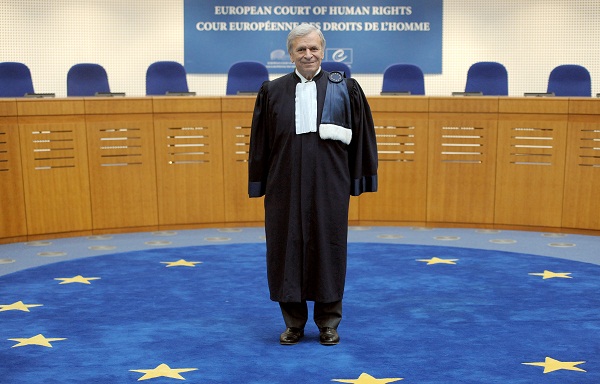Even for people on the same side of an argument, opinion is often wildly divided. Among those of us who believe government should support civil marriage equality, this morning’s papers (£), and specifically Church of England fears that the religious will be ‘forced’ to carry out same-sex weddings, re-opens a fundamental division of opinion.
The coalition’s proposals rightly only relate to civil marriage equality (that the state should make civil marriage between same-sex couples equal to civil marriage between opposite-sex couples). It has always seemed obvious to me that if the government pushes ahead with same-sex civil marriage then it should do so only if it can ensure that ‘Human Rights legislation’ will not be used to force religions to carry out religious same-sex marriages. Nevertheless there may be some who will look forward to challenging the churches (I suspect only the churches) in Strasbourg to ensure that civil marriage equality — instead of remaining civil — becomes something else, with various religious denominations getting in trouble with the law if they refuse to marry same-sex couples religiously.
As I have written before, here and elsewhere, the only religious same-sex marriages which should take place are those within denominations which have made the decision to perform such services themselves. The Quakers and Reform Jews have already said that they will — which means that if you are a gay Quaker or a gay member of the Reform Judaism movement then you may soon be able to marry, both civilly and religiously, in your place of worship. But it must also mean that if you are a member of a denomination which does not make this step — say a Roman Catholic or an Orthodox Jew — then you either change denomination, accept the fact you will never have your relationship blessed by that denomination (as opposed to recognised in law), or work within your religion to try to influence its collective mind. The idea that such a change could or should be forced from outside is appalling.
Attempting to explain the Church of England’s particular problems, the Bishop of Sheffield told the BBC this morning that for the church this ‘is not a matter of social convention but of Christian doctrine and teaching.’ Quite so — from the church’s point of view equal religious marriage would be a change because it would include a doctrinal shift (if hardly the most historic). But the beginnings of an important reciprocal principle are visible in all this. For just as religious institutions should not dictate (as opposed to argue) the principles by which people who are not members of their religion should live their lives, so people not of a particular religion should not be able to dictate (as opposed to argue) the principles by which the religious live their lives. Anybody who celebrates the opportunity to force legally a change in the way other people order their lives should at the very least be aware of how easily celebrants can become victims in these areas. If they are not then they should notice that we are witnessing just such a case now.
For many years the Catholic church and parts of the Anglican church, have been perfectly happy to influence the laws of this and other lands regarding the rights of people including those not of their flock. Some continue to try this now, both by blurring the lines between religious and civil marriage and by trying to claim exclusive ownership for themselves of the latter as well as the former. Yet now they are, understandably, not happy at all about the prospect that it might be their turn to be subject to the dictates of outside groups, individuals, courts and government.
Just because the boot now appears to be on the other foot does not mean the boot is the best way to do business. Personally, I hope the result of this current stand-off is not a tit-for-tat, but a quid-pro-quo. If the religious do not want the non-religious to have a legal veto over their conduct then they must accept they cannot have a legal (as opposed to religious) veto over the conduct of the non-religious. We now have a perfect location for some common ground. This would be the recognition that Strasbourg is not merely a mutual problem but a mutual menace. Far from protecting basic rights, in this area as in so many others, it is becoming the main instrument for violating them. I hope that withdrawal from — or at the very least serious renegotiation of — our involvement with the ECHR now becomes an issue which all of the churches take up with gusto.
 Douglas Murray
Douglas Murray
Another reason to part ways with Strasbourg






Comments